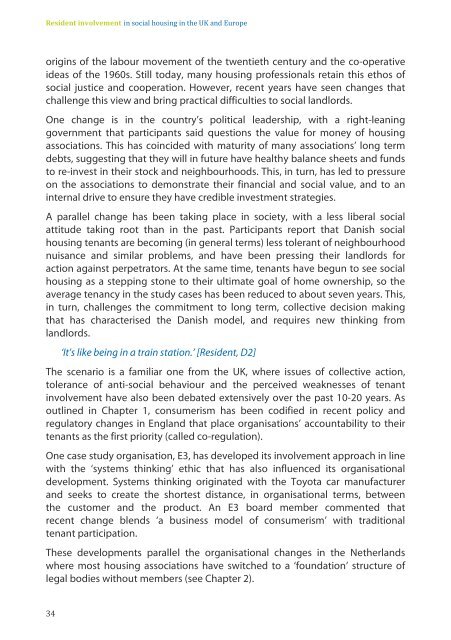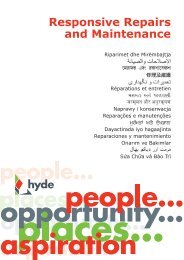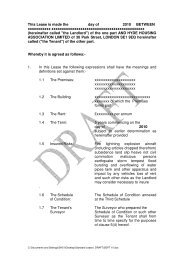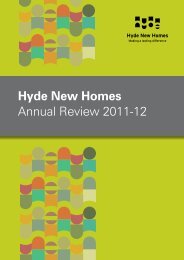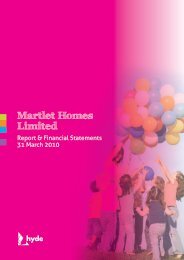Resident involvement - Hyde Housing Association
Resident involvement - Hyde Housing Association
Resident involvement - Hyde Housing Association
You also want an ePaper? Increase the reach of your titles
YUMPU automatically turns print PDFs into web optimized ePapers that Google loves.
<strong>Resident</strong> <strong>involvement</strong> in social housing in the UK and Europe<br />
origins of the labour movement of the twentieth century and the co-operative<br />
ideas of the 1960s. Still today, many housing professionals retain this ethos of<br />
social justice and cooperation. However, recent years have seen changes that<br />
challenge this view and bring practical difficulties to social landlords.<br />
One change is in the country’s political leadership, with a right-leaning<br />
government that participants said questions the value for money of housing<br />
associations. This has coincided with maturity of many associations’ long term<br />
debts, suggesting that they will in future have healthy balance sheets and funds<br />
to re-invest in their stock and neighbourhoods. This, in turn, has led to pressure<br />
on the associations to demonstrate their financial and social value, and to an<br />
internal drive to ensure they have credible investment strategies.<br />
A parallel change has been taking place in society, with a less liberal social<br />
attitude taking root than in the past. Participants report that Danish social<br />
housing tenants are becoming (in general terms) less tolerant of neighbourhood<br />
nuisance and similar problems, and have been pressing their landlords for<br />
action against perpetrators. At the same time, tenants have begun to see social<br />
housing as a stepping stone to their ultimate goal of home ownership, so the<br />
average tenancy in the study cases has been reduced to about seven years. This,<br />
in turn, challenges the commitment to long term, collective decision making<br />
that has characterised the Danish model, and requires new thinking from<br />
landlords.<br />
‘It’s like being in a train station.’ [<strong>Resident</strong>, D2]<br />
The scenario is a familiar one from the UK, where issues of collective action,<br />
tolerance of anti-social behaviour and the perceived weaknesses of tenant<br />
<strong>involvement</strong> have also been debated extensively over the past 10-20 years. As<br />
outlined in Chapter 1, consumerism has been codified in recent policy and<br />
regulatory changes in England that place organisations’ accountability to their<br />
tenants as the first priority (called co-regulation).<br />
One case study organisation, E3, has developed its <strong>involvement</strong> approach in line<br />
with the ‘systems thinking’ ethic that has also influenced its organisational<br />
development. Systems thinking originated with the Toyota car manufacturer<br />
and seeks to create the shortest distance, in organisational terms, between<br />
the customer and the product. An E3 board member commented that<br />
recent change blends ‘a business model of consumerism’ with traditional<br />
tenant participation.<br />
These developments parallel the organisational changes in the Netherlands<br />
where most housing associations have switched to a ‘foundation’ structure of<br />
legal bodies without members (see Chapter 2).<br />
34


